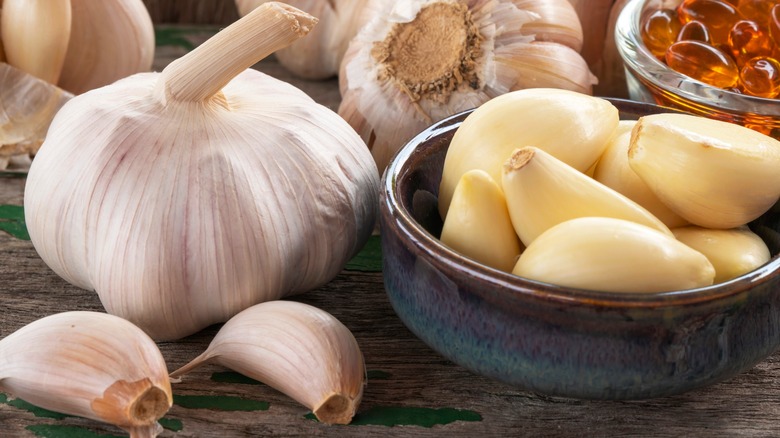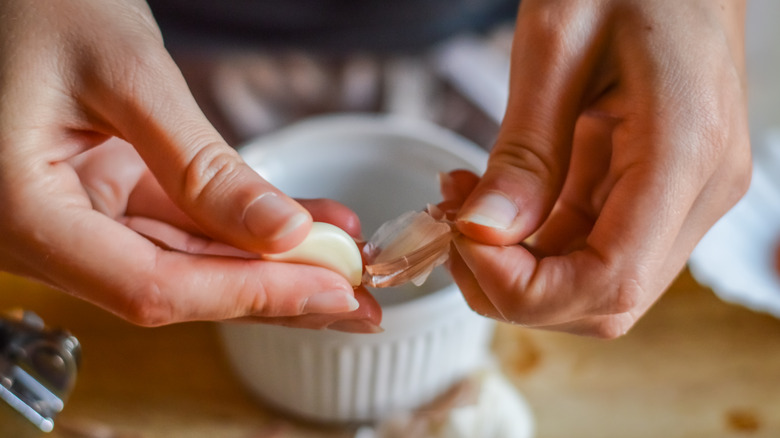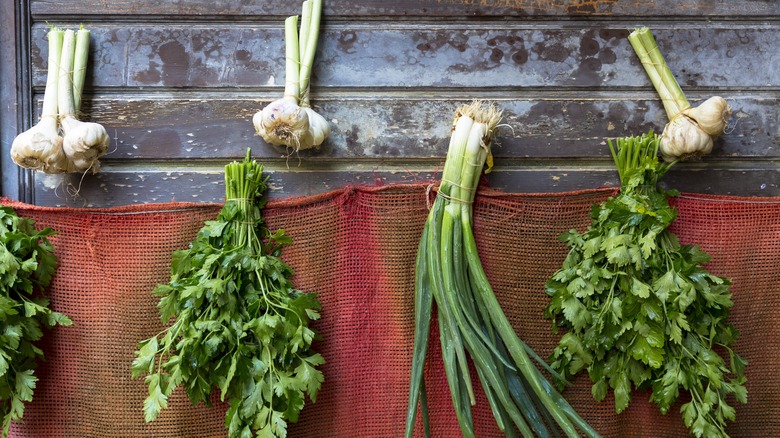Simple Ways To Tone Down The Pungency Of Garlic
Garlic is one of the simplest yet strongest ingredients to use in the kitchen. It's an extremely common bulbed vegetable that has been a worldwide staple of the culinary arts for thousands of years and is used in many types of cuisine (via USDA). Whether fresh, pre-minced, or powdered, this versatile ingredient is unmistakable for the distinct, often overpowering, fragrance that makes it so beloved for cooking.
According to Senior Voice Alaska, the garlic aroma is actually a defense mechanism of the plant to dissuade hungry, uncultured animals who know nothing of seasoning. Essentially, the garlic is trying to say, "I smell! Please don't eat me!" but we humans have embraced the aromatic power of spices. However, what does one do if the garlic throws off the balance of a dish after it has already been added? There are several ways to save a dish from getting completely overtaken by this powerful plant.
Prepare accordingly
There are many tips for cooking and prepping garlic that would help avoid the blunder of overseasoning, but sometimes mistakes happen and we need to fix them as we go. Even if you've perfected the art of peeling garlic like a restaurant chef, perhaps a particular clove is quite a bit larger or stronger than the recipe anticipates — or the other ingredients can handle. Since we often can't just remove any excess, we will need to proactively balance out its potency.
The specific method to counterbalancing garlic will depend entirely on the needs of your dish, but one of the easiest methods is to meet it head-on with a different sense of taste. Gradually incorporating another strong flavor — like adding honey or sugar for sweetness or something tangy like vinegar or lemon juice — softens the uniquely spicy and sometimes bitter taste of garlic (via The Fork Bite). By spreading the palate of your dish across more flavor receptors on your tongue it disguises the overuse of the garlic.
How to calm the scent of garlic
If the pungent smell of the garlic itself is more of a problem than the taste, then you should focus on the addition of aromatic ingredients rather than just flavorful ones. According to BMC, as much as 95% of our sense of taste is linked to our nose, and as such, the aromatics of spices are a considerable part of any dish. Using fragrant herbs or spices while cooking or garnishing a dish will add a fresh note to the punch of the garlic. Even something as simple as a fresh squeeze of lemon at the end will dramatically change the aroma of the dish — much like how adding lemon juice while cooking adjusts the flavor.
There are many small additions that can be made to lower the sometimes overwhelming strength of garlic you may find while tasting your meal throughout the cooking process. However, if all else fails, you can always create a second batch of the dish without garlic and combine the two so that each will have half of the original amount of garlic (via The Fork Bite). Not only will you have a better balance of flavors, but you'll also have more to share with friends or family. Chalk that up to a happy accident.


